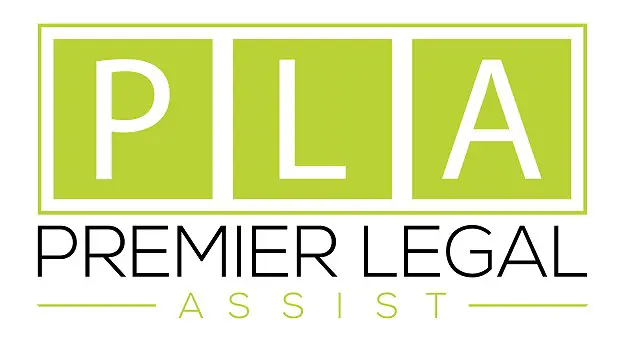Are Housing Associations Ready for Awaab’s Law?
Awaab’s Law is due to come into force in October 2025 and introduces a legal requirement for social landlords to investigate and fix issues like damp and mould within set time limits. But MPs are now warning that many housing associations may not be ready to meet these new rules.
Awaab’s Law was introduced following the tragic death of two-year-old Awaab Ishak, who died from prolonged exposure to mould in his social housing. The law, part of the Social Housing (Regulation) Act 2023, sets out strict time limits for social landlords in England to investigate and fix serious health hazards like damp and mould, aiming to make homes safer and prevent similar tragedies.
What does Awaab’s Law mean for tenants?
From October 2025, if you live in social housing in England and report damp, mould, leaks or other health hazards:
- Your landlord must investigate within 10 working days
- They must tell you the outcome of that investigation in writing within 3 days
If your home is unsafe, repairs must start within 5 working days - If it’s an emergency, action must be taken within 24 hours
If the problem can’t be fixed quickly, you should be offered a safe alternative place to live
What are the MPs' concerns?
Florence Eshalomi MP, Chair of the Housing, Communities and Local Government Committee, spoke following the announcement of the Housing Conditions in England inquiry on 3rd July 2025, saying: “We are in a housing crisis and the time for action is long overdue. Too many people, whether in the rented sector or in social housing, suffer from appalling housing conditions. Whether it is residents living in poorly insulated homes, experiencing overcrowding, or enduring housing with damp or mould, it’s crucial we see effective action to address these issues.”
Tulip Siddiq, MP for Hampstead and Highgate, addressed Parliamentary Under-Secretary for Housing, Alex Norris MP, on 14th July 2025 during an oral session in the House of Commons, saying, “I have real concerns about how ready housing associations are to implement the regulations, which are coming in very soon, in October.” She asked, “What assessment has the Minister made of housing associations’ ability to fully comply with all the regulations under Awaab’s law by October, so that we can ensure that all my constituents can live in a safe and healthy environment?”
Mr Norris MP replied, “We are working very closely with [social landlords] to support their operational readiness. We took a phased approach, but we are encouraging social landlords to act now. They should raise any concerns with us now, so that we can consider how to best support them. In the meantime, they must meet their existing legal obligations.”
At a Housing, Communities and Local Government Committee meeting on 15th July, Sarah Smith MP criticised proposed delays to the Decent Homes Standard, the broad housing reforms initially introduced in 2000 to elevate the condition of rented housing. She said, “It has been made public that this might not be enforceable until 2035 or 2037. We have had 72 children die due to their living conditions between 2019 and 2024. Why would there be this delay? Why are we not pushing as quickly as possible to make every landlord responsible for making sure that the homes that families are living in, in this country, while they await the progress of this building programme, are fit for human habitation?”
Matthew Pennycook, the Housing Minister, acknowledged the complexity and long-term nature of implementing the reforms across both social and private rented sectors.
What do social housing tenants need to know about housing disrepair claims?
Even before Awaab’s Law starts, your landlord already has a duty to keep your home safe and free from:
• Mould, fungus or damp
• Leaks, flooding or water damage
• Cracks and structural damage
• Defective roofing or gutters
• Defective brickwork
• Insect infestations
• Faulty plumbing, heating and broken boilers
• Vermin infestations (rats/mice)
• Electrical faults
• Broken doors, windows, and locks
If you complain to your landlord, and they don’t act quickly enough or resolve the issue, you may be entitled to:
- Repairs
- Compensation
- Help with temporary accommodation
Premier Legal Assist can help
Premier Legal Assist partners with a panel of specialist solicitors with extensive experience in housing disrepair law, representing clients in cases involving various Housing Associations and Councils across the UK.
To determine if you can file a housing disrepair claim, please complete the Disrepair Claim Form.
Other Insights
Important Information
Premier Legal Assist is a claims management company. You do not need to use a claims management company to make your complaint, you can complain to the organisation you are complaining about directly. If the issue is not resolved, you can refer it to the relevant independent Ombudsman service for free.
For personal injury claims, you do not need to use a representative to make a claim for low-level personal injuries sustained in a road traffic accident. You can claim through the online Official Injury Claims portal yourself, for free. If your injury damages exceed the small claims limit, we recommend you use a specialist legal service.
For all other types of personal injury, including medical negligence, employment claims and workplace injuries, we always recommend discussing your claim with a legal professional. You should only proceed with a claim when you understand the risks and associated costs.






